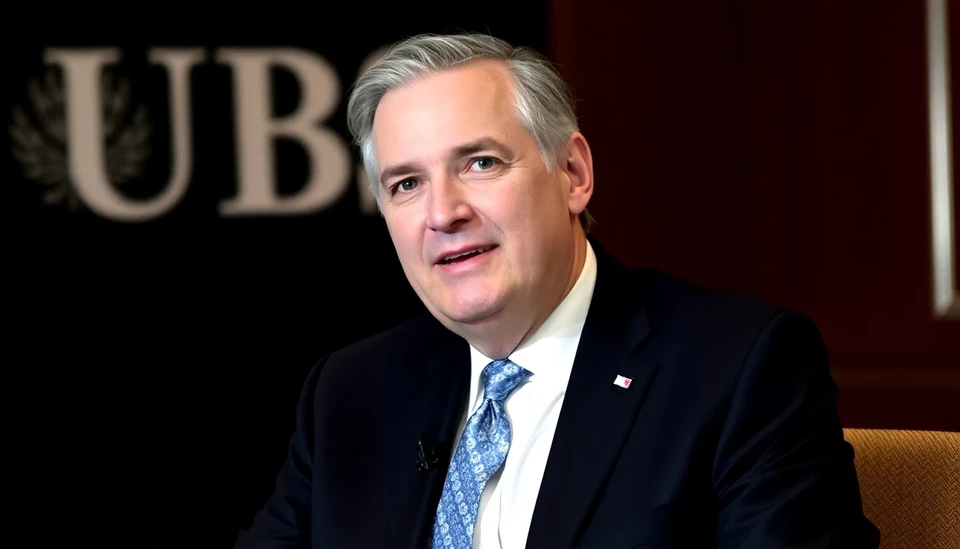
In a revealing exploration of Wall Street's recent retreat from climate initiatives, UBS Group AG's CEO, Sergio Ermotti, has shed light on the changing landscape of financial support for sustainability. Addressing concerns about the shrinking commitment of major financial institutions to environmental goals, Ermotti used his platform to emphasize the importance of maintaining sustainability as a core component of financial strategy.
Ermotti’s remarks come after a troubling trend was observed among leading banks and investment firms, many of which are now reconsidering their involvement in climate-focused groups and partnerships. These shifts raise pressing questions about the long-term viability of environmental investments as some firms prioritize short-term profitability over sustainable practices.
The backdrop of this discussion is marked by increased scrutiny from both regulatory bodies and the public regarding climate change and its implications for global economies. Investors are becoming more aware of the risks posed by climate change, which can impact market stability and financial performance. Despite this awareness, the wavering commitment from prominent financial players suggests a potential sidestep in the global push towards a greener economy.
During a recent panel, Ermotti articulated the necessity for financial institutions to not only recognize but also actively participate in combating climate concerns. He urged firms to reconsider their strategies, suggesting that a more robust integration of sustainability within their operations could lead to long-term benefits, not just for the environment but for their bottom lines as well.
In contrast to UBS's firm stance on reinforcing its commitment to sustainability, Ermotti highlighted the risks posed by those companies pulling out from climate efforts. “Acknowledging climate change is not a choice but a necessity for survival in the market. The firms that disengage risk their reputations and long-term viability,” he stated firmly.
One of the highlights of Ermotti's address was the call for unity within the financial sector. He stressed that collaboration and solidarity among banks and investment firms are crucial if they are to advance towards common climate goals. Any isolated efforts are likely to be insufficient against the pervasive challenges presented by climate change.
The conversation sparked by Ermotti’s comments also led to a broader discussion about the evolving role of financial institutions in tackling global issues. As accountability for environmental impact increases, it becomes evident that investment decisions will need to align more closely with sustainability principles. Ermotti underscored this change, advocating for transparency and commitment to environmental, social, and governance (ESG) criteria in investment practices.
As it stands, Wall Street's approach to climate commitments is at a crossroads. Companies must weigh their immediate financial gains against their moral responsibilities in view of a world increasingly affected by climate change. The future of these strategies will ultimately dictate not only the environment's trajectory but also the sustainability of financial markets themselves.
In conclusion, Ermotti’s insights reflect a growing recognition that the fight against climate change requires a concerted effort from all sectors. Financial institutions, historically seen as protectors of wealth, must now pivot to become stewards of a sustainable future.
#UBS #ClimateChange #Sustainability #WallStreet #Investment #ESG #CEOInsights #FinancialInstitutions #GlobalEconomy
Author: Megan Clarke




